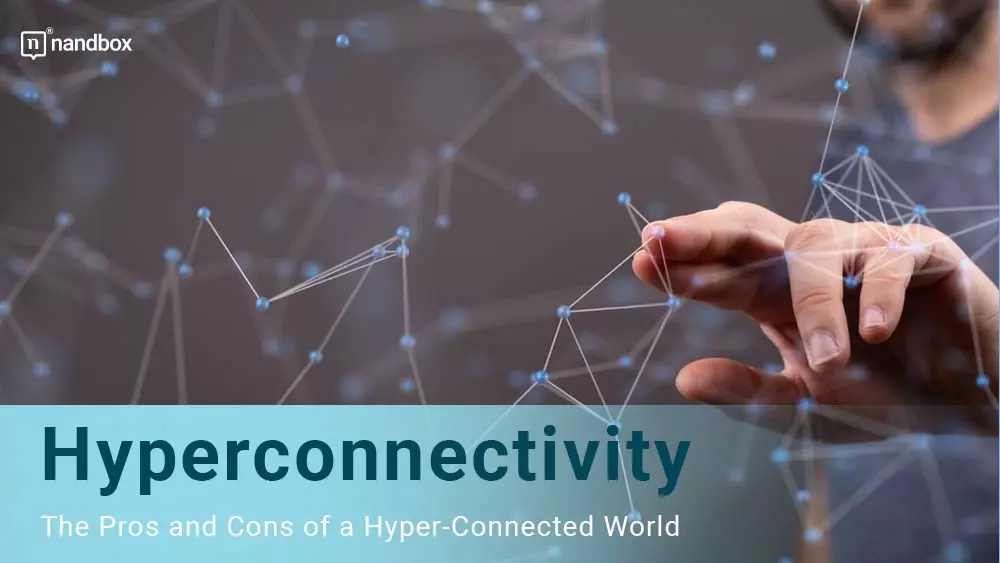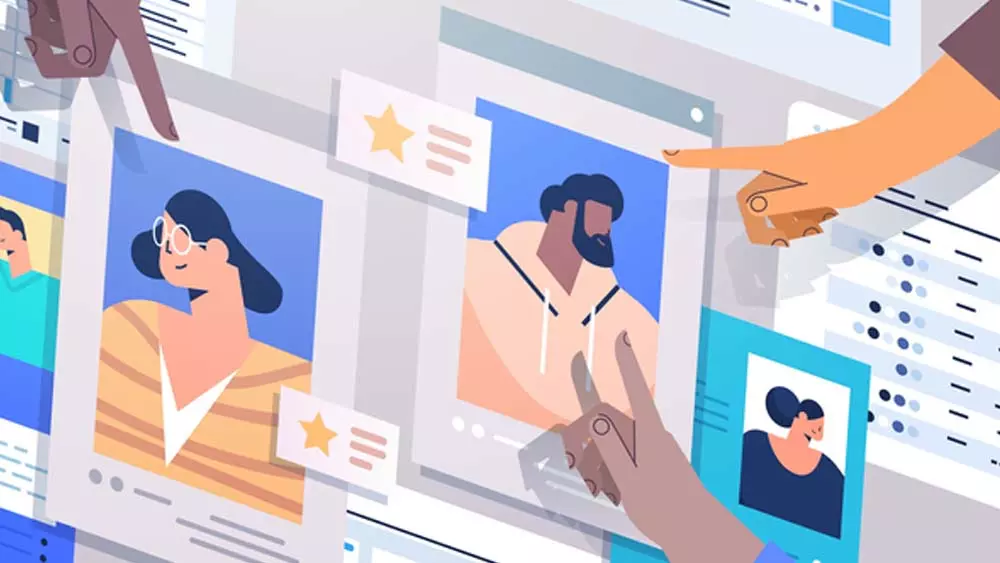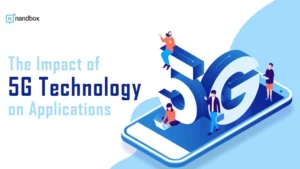The world is nowhere near how it was 100 years ago. While it’s normal for things to evolve throughout the years, the world has been changing at an unprecedented speed. Each new invention accelerates evolution, but the World Wide Web has done the most fascinating job so far. Surfing the internet has stopped being a hobby or a leisurely activity now that everyone is always online. Some might argue that we live in a more connected world. Others claim it’s a hyper-connected world and that too much of a good thing has consequences. This article goes through the advantages and disadvantages of hyperconnectivity from a social standpoint.
What is Hyperconnectivity?
Canadian social scientists Anabel Quan-Haase and Barry Wellman coined the term “hyperconnectivity” as a result of their research into human-to-human and human-to-machine interaction in networked groups and societies.
The term started as a referral to how there are multiple ways we can stay connected, such as email, text messaging, and phone calls for more.
Today, the connectivity part is more about people being connected to the internet most of the time, wherever they go and whatever they do.
This includes all forms of communication, including those between humans and machines. Because of the complexity, diversity, and integration of new applications and devices using the network, this trend is fueling large increases in bandwidth demand and changes in communications.
How Hyper-Connected Has the World Become Now?
- The internet made communication and information sharing much faster than it was before. You could learn about an incident happening on another continent from the comfort of your living room.
- Thanks to the widespread availability of mobile phones, people can keep in touch with one another at all times and from any location.
- The internet birthed social media platforms where people can communicate and share information instantly.
- Hyperconnectivity resulted in advancements in many sectors, such as finance, politics, economics, business, and transportation.
Pros and Cons of a Hyper-connected World
Hyperconnectivity impacted the world in many forms. The following sections will discuss the pros and cons of some aspects.
#1: Social Awareness
Gone are the days when people lived in an isolated social bubble, learning about other lives from newspaper columns. Now, people are more aware and empathetic to various social classes.
- Pros
Everyone can learn about the living conditions of other people and the everyday struggles that they would otherwise be oblivious to.
- Cons
Social awareness has its disadvantages. Some people aren’t ready to have a conversation about social injustice. Sometimes, people are limited by their experiences and perspectives to see the whole picture. They see the world from a more privileged point of view, and sometimes the complete opposite. The result is that as the social gap fills from one side, it empties from another.
#2: Knowledge
Back in the day, our grandparents had to visit a library to obtain any type of knowledge. Now, you type in the Google search bar and get every attainable piece of information related to the topic.
- Pros
Now that knowledge is easy to acquire, people can get educated on various subjects effortlessly. Anyone who can read and write can learn and become adept in any discipline. The result is that people are better educated and more informed about subjects that were unheard of before.
- Cons
Ignorance can be bliss; it’s true. With widespread knowledge, people are exposed to harmful content. It’s damaging for anyone, especially the impressionable youth whose minds are in development. In the deeper webs of the internet, conspiracy theorists feed minds with absurd theories, and unfortunately, some people will believe anything unconventional.
#3: Information
Before, people only got their news from newspapers and the radio. Although it had some drawbacks, people had credible sources to learn the latest gossip. Through social media platforms, anyone can say anything anytime and anywhere. Let’s discuss how that can be good and bad.
- Pros
With local news being the only source for news, only one point of view reaches the public. But with social media, people hear different takes on one subject and can see the truth from different angles.
- Cons
With anyone capable of saying anything, people spread false information that could harm the person in question. Sometimes, it’s hard to tell what’s legit and what isn’t. False news could influence people to change their political stance or spread unjustifiable hate. The disadvantages are numerous.
#4: Human Interaction
With letters taking months to reach the recipient, making new friends from other countries was a bit troublesome since letters took months to travel from and to. After the internet blessed our lives, people started making friends from all over the world through social media, and they can interact with them instantly through text messaging.
- Pros
With increased human interaction, people learn more about other cultures and listen to different stories. In most cases, it helps them gain new perspectives and be more in touch with humanity.
- Cons
Unfortunately, now people are more in touch with internet personas and less with real humans. They start seeing others as having opinions and attacking them based on those opinions. Moreover, people sometimes spend so much time online that they lose touch with reality.
#5: Freedom of Speech
Now that everyone has an opinion, everyone calls for freedom of speech. The thing is, freedom of speech is a double-edged sword.
- Pros
Freedom of speech allows everyone to sit and listen to arguments and counterarguments to make informed decisions. Additionally, it allows for self-expression in various forms.
- Cons
Sometimes, hate speech is mistaken for freedom of speech. As a result, the internet is filled with hate and cyberbullying. It’s easy to be hateful when hiding behind a keyboard.
As you can tell, hyperconnectivity has its benefits and drawbacks. At the end of the day, it’s about how you use your internet connection. You choose what to project to the world and what you will get exposed to.
Mobile applications are on the list of inventions that keep people connected to their phones all day. Do you want people to connect with your business? Build a native no-code app with the nandbox app builder now.







